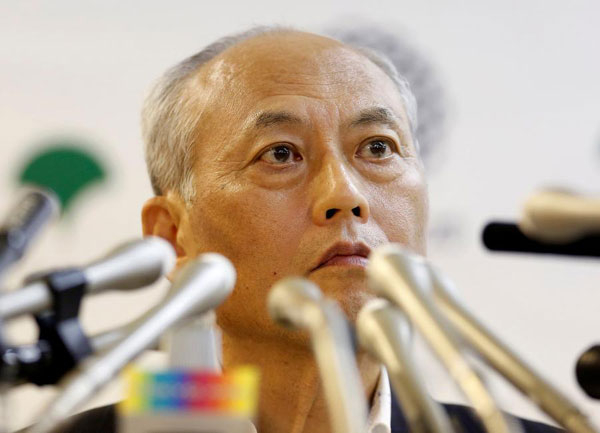Tokyo Gov Masuzoe resigns after funds scandal
(Xinhua) Updated: 2016-06-15 11:09
 |
|
Tokyo governor Yoichi Masuzoe attends a news conference at Tokyo Metropolitan Government Office in Tokyo, Japan, May 27, 2016. [Photo/Agencies] |
TOKYO - Tokyo Governor Yoichi Masuzoe on Wednesday submitted a letter of resignation to the president of the Tokyo assembly and will step down from his post for his involvement in a funds scandal, the subsequent probe into which Masuzoe was unable to sufficiently account for with the assembly set to pass a no-confidence motion against him later in the day.
The embattled 67-year-old governor is accused of misusing political funds on numerous occasions for his own personal purposes, in violation of Japan's political funds law and in a blow to Japanese politics and Prime Minister Shinzo Abe who has lost four of his own ministers to high-profile scandals since retaking office in December 2012, with Masuzoe's case further highlighting an inherent culture of fraudulent political funds use and bribery endemic for decades in Japanese politics.
On Monday, Masuzoe was grilled by the assembly over his misappropriation of funds and was found to provide insufficient clarification on his spending and in some cases refused to elaborate and provide adequate details when being examined.
The departure of Masuzoe, following his predecessor Naoki Inose also stepping down for a money scandal, has reignited fierce debate about money and politics in Japan, with such instances of graft, misappropriation of political funds, corruption and bribery involving political figures, rarely being out of the headlines here.
Masuzoe himself had previously apologized to the public for his involvement in the scandal stating he intended to carry on in his position and restore the public's faith in him, but an irate public as well as both ruling and opposition camps have been gunning for Masuzoe to step down, despite the upcoming Rio de Janeiro Olympics in August and the almost certain negative impact his resignation will have on the 2020 Tokyo Olympics.
Seven assembly groups, however, which include the ruling Liberal Democratic Party and its Komeito ally, have jointly agreed to submit the no-confidence motion to the plenary session on Wednesday, despite the potential fallout.







